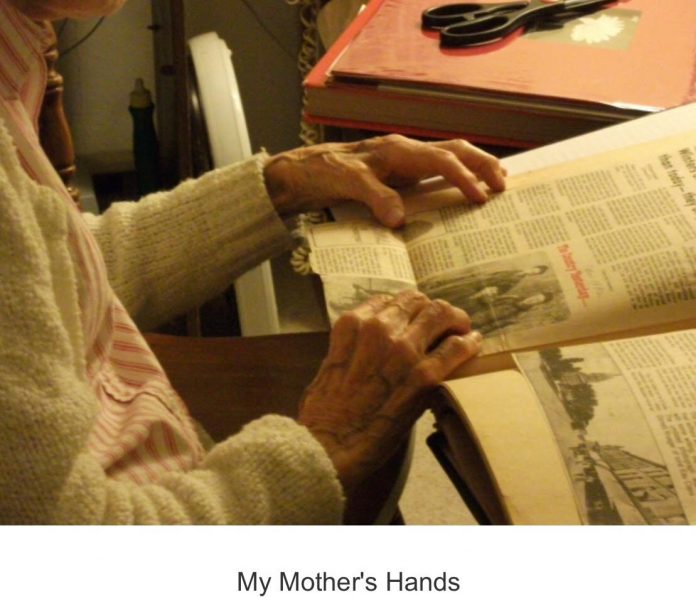Norma died at home a week after sustaining a ten-stitch knee laceration in a fall due to a negligent lapse in my care-giving. That was her only significant injury. She’d fallen many times, never before due to a lapse in my care-giving, and recovered from injuries more severe, such as hips that fractured while standing, due to osteoporosis. She shouldn’t have died from this injury. The wound didn’t become infected. But I saw her cry out in distress and pain because of absent medication during a transfer from her bed to an ambulance and inadequate medication during two emergency room visits. I saw the same crying out whenever she was attended to physically for any reason by any health professionals during the time I supplemented her care for 24 of her 60 hours in Intensive Care; and this from a woman with a history of great tolerance of pain!
And more negligence
Norma was medicated for only 12 of her 60 hours in ICU, and not even that medication was adequate! Intensive Care staff ignored my advice for positioning Norma so that she could rest and sleep soundly. She cried out every time they changed her from one improper position to the next and they did that every two hours! And her nurses weren’t reporting Norma’s distress to their superiors. (Norma could sleep soundly on her left side only and she did this for several years without developing bed sores.)
This appears to have been the usual nightmarish experience Norma had whenever she was a patient in a health care facility; times of sleep deprivation with frequent assaults of distress and pain. But this time, her dementia probably prevented her from clearly understanding why these strangers at this strange place kept hurting her and, worst of all for me, why I didn’t protect her. But by this time, I thought it had to be this way and that she’d also recover as usual.
Always a good worker
Consequences
I was devastated when staff announced that Norma’s kidneys had failed! They gave me no warning that they were beginning to fail! She would die and not recover! She’d told me a couple years before that “I’m not scared of dying. I just don’t want to suffer”. I replied “I think we can work that out”. We didn’t. She’d never have her death without suffering and I’d never have a chance to correct my care-giving. I’ve learned to avoid reminders of Norma as much as possible because they instantly return me to the emotions, sights and sounds of her horrific last week. Remorse has made the memories of her that could’ve been bittersweet worse than bitter.
Wanting to know what part I’d played in her death, I asked a nurse why her kidneys failed. I was told that elderly patients can seldom withstand the prolonged, repeated stress that was inflicted on Norma. I think Norma actually succumbed to the physiological shock experienced by victims of torture. Their organs fail because the extreme stress results in acute systemic inflammation.
I think Norma may have recovered if she’d been adequately medicated and the staff had taken my advice on positioning her. Even if she’d not recovered, she would’ve at least had the death without suffering that she both deserved and wanted.
Endings
Norma was discharged several hours after a single competent, compassionate nurse finally medicated her adequately because he couldn’t bear her suffering! She went home and a local hospice expertly helped my siblings and I control her suffering during three days and eerie nights of deathwatch and Norma communicated and expressed opinions up to 24 hours before she took her last breath.
Norma and I gathered wild rice.
Wild rice in background didn’t exist until we planted it.
Not Bad Enough?
I thought this tragic tale of negligence was then ended when, a month later, a sister notified me of what I consider a final insult for Norma; this one to her legacy. A doctor working with the hospice and who never met or treated Norma filled out her death certificate. He listed her cause of death as dementia due to dysphasia, which means difficulty speaking! I regard that not only as false, but degrading and ludicrous as well. Norma could speak. And even if she couldn’t, how could difficulty speaking cause her death? Finally, it’s degrading because to die of dementia means that it had progressed to the point where all volition is lost and the victim has succumbed to a vegetative state. That never happened to Norma and to say it did is an insult.
It Gets Even Worse
Ever since I learned of this, I’ve been trying to amend this cause of death on her certificate. I’ve so far found that impossible because another doctor has to provide a second opinion before I can even file a petition to amend. Every doctor I’ve asked to provide this second opinion has refused to do so. So I’ve asked a number of my state’s legislators to remedy this situation. I’ve gotten no indication that any are interested in doing anything about this despite them learning from data I furnished that shows rampant inaccuracy in death certification.
Takeaway
Please be wary of error and negligence in the medical profession if you’re elderly and become a patient in a healthcare facility or if you’re caregiver to such a patient. Both are likely to be more serious or even fatal for elderly patients. And after all, I don’t see why being trained as a medical professional makes someone perfect.
It’s taken many months for me to realize how inferior Norma’s treatments were and how differently it could’ve been if only I’d been more assertive when I thought they were going wrong. Only months later did I begin to realize that nearly all her doctors and nurses treated her as if she was decades younger; a fatal error. My challenging and questioning of the professional’s treatments and mistreatments was just too little and too late. As they say, “Question authority!” Yes, but I must add, “And if you don’t do that in time to avoid tragedy, do it after, so that others have a better chance to avoid the same”!
If you or someone you know has been a victim of something like this, your most effective action to help others avoid something similar may be the posting of a review on the offending institution’s website, as that seems to have been my most effective action, however limited to only one facility. My official complaint, filed with my state’s medical examiners board, didn’t even make it past its screening committee. And of course, you can always search for other venues at which to offer your story, as I am now doing here. You may find, as I am, that offering your story to help others makes life much more endurable, perhaps because it gives meaning, purpose and value to the suffering experienced.
Farewell: Michael
























